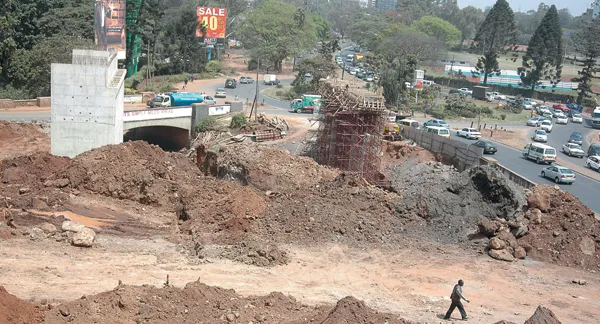Colombia’s National Infrastructure Agency (ANI) has approved Consorcio Estructura Plural Via al Puerto to build the remaining 26.5km of the Buga-Buenaventura dual carriageway.
Construction costs will be just under US$358 million with another $645 million likely needed to maintain and operate the public-private partnership road for 30 years.
Works include construction of two tunnels, 12 bridges, 7.5km of cycle lanes, as well as maintenance of 111km of the main road, according to a report by El Pais new
May 24, 2016
Read time: 2 mins
Colombia’s National Infrastructure Agency (ANI) has approved Consorcio Estructura Plural Via al Puerto to build the remaining 26.5km of the Buga-Buenaventura dual carriageway.
Construction costs will be just under US$358 million with another $645 million likely needed to maintain and operate the public-private partnership road for 30 years.
Works include construction of two tunnels, 12 bridges, 7.5km of cycle lanes, as well as maintenance of 111km of the main road, according to a report by El Pais newspaper.
The consortium consists of three partners: 34% held by Carlos Alberto Solarte Solarte and 33% each held by Conconcreto and CSS Constructores.
Buenaventuyra, with a population of around 335,000, is Colombia’s main Pacific coast port. The highway forms part of the Bogotá-Buenaventura corridor, which transports more than 40% of the country's cargo to be exported by way of the Pacific Ocean.
Meanwhile, president of Colombia's national development bank Financiera de Desarrollo Nacional, Clemente del Valle, said that the financing of eight projects in the first wave of Colombia’s 4G road strategy should be finalised by August. Del Valle said that 17 financial institutions, including five banks as well local and international monetary funds, are willing to support 4G roads.
The second wave of project is likely to need more funding than the first and he government will put the proceeds from the sale of government stock in the energy firm Isagen towards second wave projects.
However, the director of Colombia’s National Planning Department, Simon Gaviria, warned that more work focus needs to be applied to secure timely private sector funding for 4G projects, according to a report by El Espectador newspaper. He said that $10.03 billion is needed for the first wave, but so far only one project has secured the necessary capital.
Construction costs will be just under US$358 million with another $645 million likely needed to maintain and operate the public-private partnership road for 30 years.
Works include construction of two tunnels, 12 bridges, 7.5km of cycle lanes, as well as maintenance of 111km of the main road, according to a report by El Pais newspaper.
The consortium consists of three partners: 34% held by Carlos Alberto Solarte Solarte and 33% each held by Conconcreto and CSS Constructores.
Buenaventuyra, with a population of around 335,000, is Colombia’s main Pacific coast port. The highway forms part of the Bogotá-Buenaventura corridor, which transports more than 40% of the country's cargo to be exported by way of the Pacific Ocean.
Meanwhile, president of Colombia's national development bank Financiera de Desarrollo Nacional, Clemente del Valle, said that the financing of eight projects in the first wave of Colombia’s 4G road strategy should be finalised by August. Del Valle said that 17 financial institutions, including five banks as well local and international monetary funds, are willing to support 4G roads.
The second wave of project is likely to need more funding than the first and he government will put the proceeds from the sale of government stock in the energy firm Isagen towards second wave projects.
However, the director of Colombia’s National Planning Department, Simon Gaviria, warned that more work focus needs to be applied to secure timely private sector funding for 4G projects, according to a report by El Espectador newspaper. He said that $10.03 billion is needed for the first wave, but so far only one project has secured the necessary capital.








